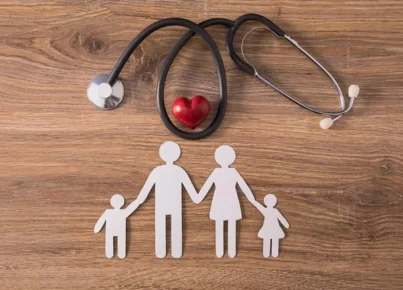In today’s fast-paced and increasingly digital world, the emotional health of young people has become a crucial concern. Depression, anxiety, and stress are affecting the lives of countless adolescents, putting their well-being and happiness at risk. Recognizing the gravity of this situation, a new emotional health program specifically designed for young individuals has emerged as a beacon of hope. This article aims to shed light on the goals, methods, and benefits of this life-changing initiative.
The Goal: A Comprehensive Approach to Emotional Health
The primary objective of this new program is to address the rising struggles with emotional health among young people. It aims to use a comprehensive approach that not only deals with immediate issues but also fosters long-term resilience and self-awareness. By providing guidance, support, and vital tools, this program seeks to empower teenagers to develop healthy coping mechanisms and strengthen their emotional well-being.
Methods: Empathy, Education, and Empowerment
One critical component of this program is establishing empathy-based interactions between participants and trained mental health professionals. By encouraging open communication in safe spaces free from judgment or criticism, teenagers can feel more comfortable delving deeper into their emotions without fear or apprehension.
Education is another vital aspect of the emotional health program. Engaging discussions regarding mental health topics provide valuable knowledge about mental wellbeing and related issues such as self-care strategies, healthy expression of emotions, and ways to promote positive relationships.
Moreover, empowerment is fostered by involving participants in various activities that enhance self-reflection, interpersonal skills, decision-making abilities, and mindfulness practices. These activities also encourage participants to connect with their peers who share similar experiences.
The Benefits: Lasting Impact on Lives
By engaging in this emotional health program designed for young people, participants can expect long-lasting positive effects on their well-being. These benefits include:
1. Improved self-awareness: Understanding and acknowledging their emotions better equips young individuals to handle challenges.
2. Enhanced coping mechanisms: Developing healthier responses to stress, anxiety, and depression promotes emotional resilience.
3. Strengthened relationships: By connecting with others in a supportive environment, teens can experience more profound and fulfilling relationships with friends, family, and peers.
In conclusion, the new emotional health program for young people stands out as a crucial initiative aimed at addressing the pressing concern of mental well-being in today’s society. Providing guidance, education, and empowerment paves the way for teenagers to lead happier lives marked by a strong sense of emotional stability. As we continue to prioritize emotional health care for our youth, we can undoubtedly hope for a brighter future.





